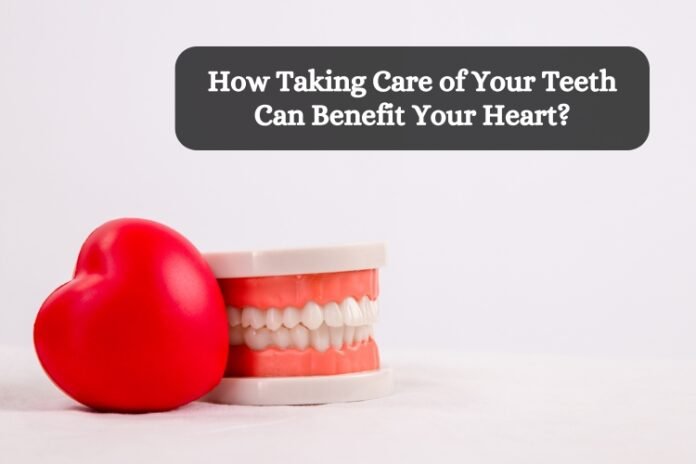While many people consider dental care and heart health as separate health concerns, emerging research reveals a surprising connection between the two. Maintaining good oral hygiene not only keeps your teeth white and your smile bright but also plays a crucial role in protecting cardiovascular health. Ignoring dental health, however, can lead to more than just tooth decay and gum disease it could increase your risk of severe heart disease. This article explores the intricate connection between oral health and cardiovascular well-being, supported by scientific research and practical tips on maintaining both.
How Oral Health Affects Cardiovascular Wellness
The connection between dental health and heart disease lies in the role of harmful bacteria and inflammation. Your mouth serves as a gateway to the rest of your body, and the state of your teeth and gums can impact your overall health, including the heart.
Inflammation as a Key Factor
Gum disease, also known as periodontal disease, is an infection affecting the tissues that support your teeth. It often starts as gingivitis, marked by symptoms like swollen and bleeding gums. If left untreated, gingivitis can evolve into a more severe condition, leading to increased systemic inflammation throughout the body.
This inflammation can allow oral bacteria from your mouth to enter the bloodstream, traveling to other parts of the body, including the heart. Once in the bloodstream, these bacteria can cause inflammation in the blood vessels, contributing to the development of cardiovascular conditions such as atherosclerosis and heart disease.
Oral Bacteria and Heart Health
Certain oral bacteria from the mouth, including Streptococcus mutans and Porphyromonas gingivalis, have been found to travel to the heart via the bloodstream. These bacteria can attach to damaged areas of the heart, potentially causing endocarditis, which is an infection of the heart’s inner lining.
Plaque Formation in Arteries
The same bacteria that contribute to gum disease can also play a role in atherosclerosis, a condition where fatty deposits build up in the arteries. This buildup narrows the arteries, restricting blood flow and increasing the risk of heart attacks and strokes.
Shared Risk Factors Between Oral Health and Heart Disease
Dental health issues and cardiovascular disease share several common risk factors, such as smoking, poor diet, and diabetes. Addressing these shared risk factors can help improve both oral and heart health.
Research Supporting the Connection Between Oral Health and Cardiovascular Disease
Multiple studies have highlighted the link between oral hygiene and cardiovascular disease. Research published by the American Heart Association indicates that people with gum disease are nearly twice as likely to develop heart disease compared to individuals with healthy gums.
Additional research on chronic inflammation has shown that high levels of C-reactive protein (CRP) a marker of inflammation are linked to both gum disease and heart disease. Studies suggest that treating periodontal disease may reduce systemic inflammation, benefiting heart health. Although more research is needed to determine if directly treating gum disease can lower heart disease risk, these findings stress the importance of maintaining good oral hygiene.
Warning Signs of Poor Oral Health
Being aware of potential signs of poor dental health can help prevent complications that may affect your cardiovascular health. Common indicators of oral problems include:
- Red, swollen, or bleeding gums
- Persistent bad breath or an unpleasant taste in the mouth
- Pain while chewing or sensitivity to hot and cold
- Receding gums or loose teeth
- Presence of pus around teeth or gums
If you experience any of these symptoms, it’s important to consult a dentist immediately to prevent further complications.
Practical Tips for Maintaining Both Oral and Heart Health
Taking care of your teeth and gums is essential not only for maintaining a healthy smile but also for supporting cardiovascular wellness. Here’s how you can safeguard both:
1. Brush and Floss Daily
Brush your teeth at least twice a day with fluoride toothpaste and floss once a day to remove plaque and bacteria that can lead to gum disease.
2. Visit Your Dentist Regularly
Regular dental checkups and professional cleanings are vital. A dentist can spot early signs of gum disease and address them before they progress into more serious issues.
3. Quit Smoking
Smoking is a major risk factor for both gum disease and heart conditions. Quitting smoking can significantly improve your overall health and reduce the risk of developing both oral and cardiovascular diseases.
4. Eat a Heart-Healthy Diet
A well-balanced diet rich in fruits, vegetables, whole grains, and lean proteins supports both oral and cardiovascular health. Limiting sugar intake can reduce the risk of cavities and gum disease.
5. Manage Chronic Conditions
Conditions like diabetes increase the risk of both gum disease and heart disease. Managing these conditions properly through medication and lifestyle changes can improve your health.
6. Practice Stress Management
Chronic stress can weaken your immune system, making you more susceptible to infections, including gum disease. Incorporate stress-relief practices such as meditation, yoga, or physical activity into your daily routine.
The Importance of Awareness
Understanding the connection between dental health and cardiovascular wellness is key to adopting a holistic approach to healthcare. Public awareness campaigns by heart care hospitals in Pune, can play a crucial role in highlighting the importance of integrating oral hygiene into broader health strategies.
Final Thoughts
Your oral health is far more intertwined with your heart than you might realize. Simple habits such as brushing, flossing, and regular dentist visits do more than keep your teeth healthy they can help reduce the risk of serious heart conditions. By taking care of your teeth and gums, you’re not only improving your smile but also enhancing your heart health and overall quality of life. Proactive oral care today can pave the way for a healthier heart and a longer, healthier life.

